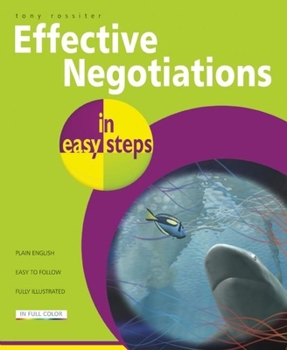Effective Negotiations in Easy Steps
To negotiate: to confer with others in
order to reach a compromise or agreement. That's the dictionary
definition. It's something we do every day, like it or not. We can't avoid it.
It doesn't have to involve contracts or business deals. It might just mean
agreeing a deadline for the task you're working on, sorting out office
accommodation or equipment for a new member of staff, or talking to your boss
about your vacation plans.
Discussions of this kind may not be thought of as
negotiations. But often, in order to arrive at a solution all the interested
parties can accept, you need to settle for less than you would ideally like.
You need to give and take - in other words, to negotiate. Negotiations don't
have to be formal exchanges with a set agenda conducted around a table. They
can be formal or informal; internal (with colleagues in your own organization)
or external; bilateral (involving just one other party) or multi-party. They
come in all shapes and sizes. They can take a couple of minutes or a couple of
months.
Whether you have to negotiate contracts, you're in
sales and have to negotiate with customers or your organization has overseas
interests and you're involved in international negotiations, the principles and
techniques of effective negotiation apply to all of these scenarios.
Effective Negotiations in easy steps will show you
how, in the familiar In Easy Steps style, with
clear and easy steps and explanations, colour illustrations and hot tips.





